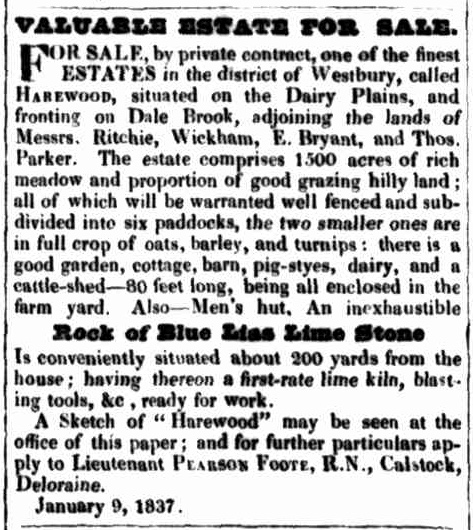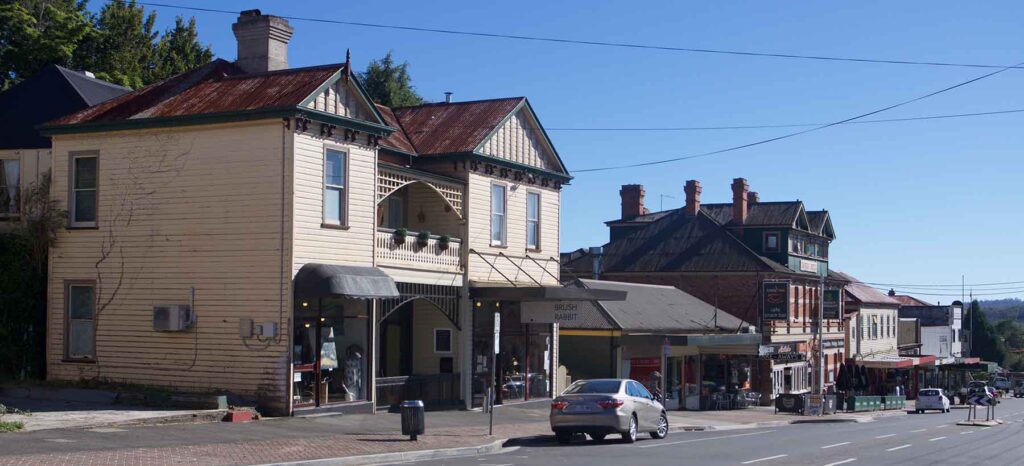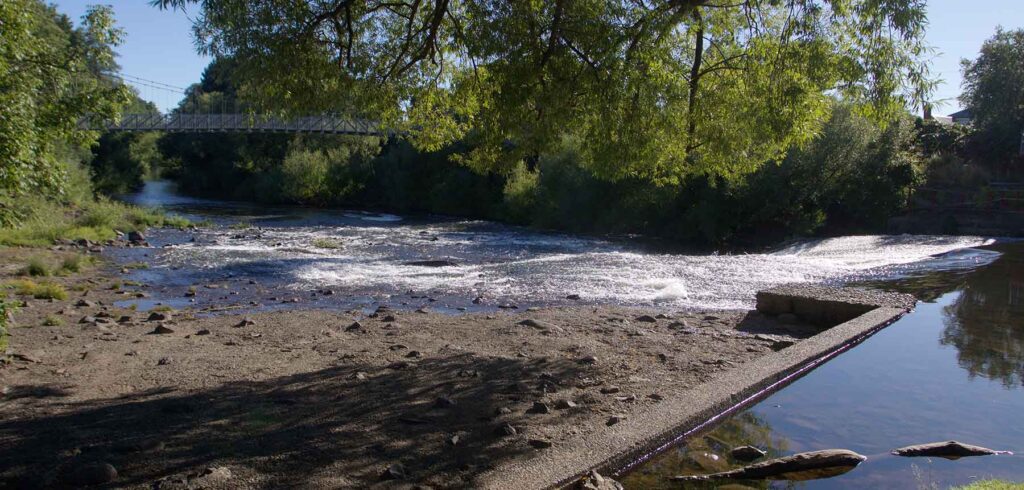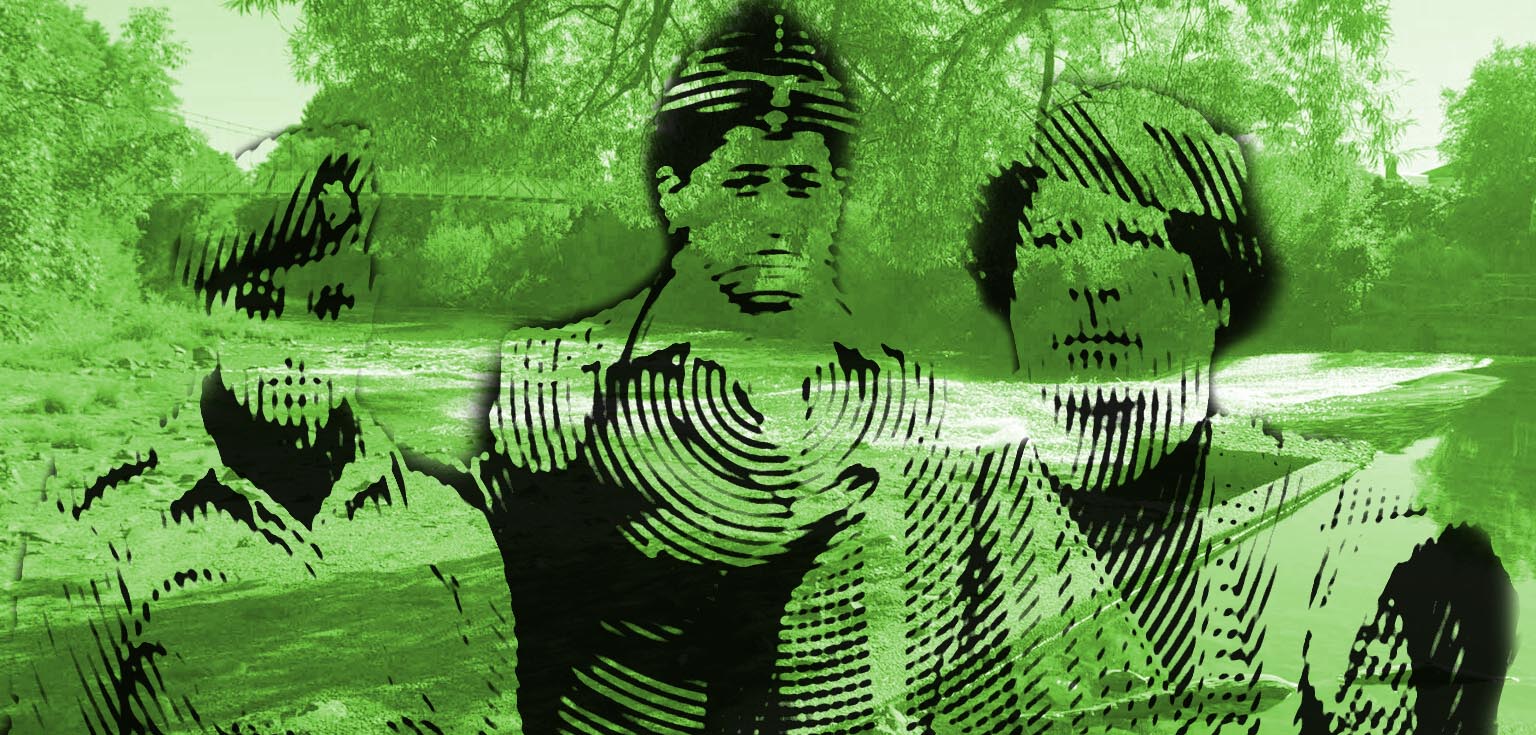At Deloraine, northern Tasmania, there is a grand Georgian-style house on the grounds of a property called Calstock. This was not built by Lieutenant Pearson Foote of the Royal Navy (1792-1871), but by a subsequent owner of the estate.
Today, the building that was not his home is a four star hotel.
Update: apparently it is not that any more. It got sold for an obscene amount of money..
Apart from being an inspiration to future Libyan dictator Colonel Gaddafi, there has to be a lot more to Lt. Foote than is currently understood.
Calstock and Harewood were the names of two properties owned by Lt Foote in the Westbury district of Van Diemen’s Land from the 1820’s to the 1840’s. Pearson (or Pierson) Foote was born in Cornwall, England on 5 April 1798. He was the fifth of eight children born to John Pierson Foote and Mary Thorn at Harewood House by the village of Calstock.
His father dropped dead in June 1809. Pierson was his third son, so was never going to inherit the family estate even if he was old enough to at the time. Instead he joined the Royal Navy and was enrolled as an officer on 1 October 1824. Lt. Pearson Foote, RN, never seems to have been given command of a ship.
Instead, Mr. P. Foote sailed in cabin class on the barque Nancy (H. Pryce, RN, commander) from England on 11 July 1829, reaching Van Diemen’s Land some time in March 1830. Some months after that he was granted land in the Westbury district in the north of the island and by August at least, had been granted the first of the assigned convicts he would use to develop his property.
On 23 November 1830 he married Susan Parker, daughter of a neighbour on the Norfolk Plains. A record of this marriage was kept by the Admiralty against any potential claims for a future Royal Navy widow’s pension.
Foote’s first property was on the Dairy Plains, which he named Harewood. He put Harewood up for sale after he acquired land at Deloraine.

Being one of the Gentry, and thus eligible to use the epithet “Esquire” after his name, he was part of such worthy mutual admiration societies as the “Cornwall Agricultural Association” (Not the English one) and the local Horticultural Society. As a matter of course, he was appointed a Justice of the Peace and a magistrate for his region.
His Excellency and suite then proceeded to dinner to the house of Lieut. Foote, R.N. at Deloraine, where that gentleman has done so much to improve his estate by clearing and breaking up the soil, building, &c.
The Hobart Town Courier (Tas. : 1827 – 1839) 25 March 1836 page 4
During March 1836 he hosted Lt-Governor Arthur himself at his residence at Deloraine. Afterward he attached his name to some grovelling in case his nose wasn’t brown enough.
SIR,—We, the undersigned residents in the Northern Division of the Island, desire to express to your Excellency the satisfaction we have experienced at the visit you have made to its capital, and while we regret that your public avocations forbid a more prolonged one, we look forward to an early renewal of it, when we hope to have an opportunity afforded us of evincing our feeling towards yourself and Mrs. Arthur, by some public demonstration of respect.
The Hobart Town Courier (Tas. : 1827 – 1839), 25 March, p. 4
We have the honor to be,
Sir,
Your most obedient humble servants,
Tho. Archer, M. L. C. J. D. Toosey, V.D.L. Est.
W. P. Weston J. P. R. Vincent Legge, J. P.
Wm. Archer J. P. M. Franks
G. Yeoland J.P. Wm. Seccombe, J.P.
W. Paton J.P. Henry Jennings
Alfred Wm. Horne J.P. Pearson Foote, J.P.
In late October 1838, he was assigned a convict named James Dyson to his service. In late November he sent the wretched man to Captain Moriarty to deal with for idleness and neglect of duty. Moriarty sentenced him to six months hard labour with the Snake Banks road gang before he was returned to Foote’s service about May 1839. Dyson was sent back to the depôt at Launceston by October. Foote may not have wanted him back.

Over half a century ago Deloraine could boast of some distinguished naval and military men among the first land owners of the district for, in addition to Captain Moriarty at Dunorlan, there was that fine type of an English gentleman, Lieutenant Pearson Foote, R.N., the first owner of Calstock and Harwood, both of which properties he named after the family estates of the Footes in Devonshire, England, opposite Cote Hele, the seat of the Earl of Mount Edgecombe, a branch of which distinguished family our old and respected resident, Mr. J. L. Edgecombe claims to be.
Western Tiers (Tas. : 1980 – 2004) 20 May 1983: 27. Web. 18 Jul 2022
[…][Foote] is spoken of by those who had the pleasure of his acquaintance as a most hospitable, if somewhat eccentric gentleman, who used to have a flag pole near where Calstock house now stands, the arranging and hoisting of flags on which used to occupy a considerable portion of his time.
It’s important to state that Lt Pearson Foote was stark staring raving mad. If he was anyone other than a ‘gentleman’ he would have been locked up.

About the time a certain convict was due to be returned to Foote’s service, a bushranger gang swept through the Deloraine district. People were robbed. A man was murdered. The local constable claimed it never happened and blamed his constituents for getting into a panic, including one — unnamed — gentleman. —
[…] That no particular alarm exists among the settlers, is evident from the circumstances of one of them who lives beyond Deloraine having refused the protection of a party of constables, who were patrolling for the purpose of quieting the fears he might have entertained from the reports before alluded to.
The Cornwall Chronicle (Launceston, Tas. : 1835 – 1880), 27 April 1839, p. 2
Another gentleman in the neighbourhood whose fears have been much excited, took the best precaution he could to protect his own person by surrounding himself with a party of young and amiable females, by far the most desirable and agreeable body guard he could have selected.
I am, Sir,
Your obedient servant,
THOMAS JEFFCOTT,
District Constable.
Westbury. V. D. Land,
April 23, 1829.
Jeffcott’s detractors (of whom there were many) were not so coy in their responses…
… We applaud the gentleman’s courage, certainly, and have no hesitation in declaring it to be our opinion, that any MAN cloaking his own person from injury inside a barrier made of females, deserves immortalizing ; and we propose that an address be at once “got up,” declaratory of the gentleman’s heroism, and be entrusted to the District Constable for signatures, which may easily be procured amongst the chain-gangs, shingle-splitters and sawyers in the bush, provided always that the canvasser is authorized to promise tickets-of-leave and other sorts of indulgences.
The Cornwall Chronicle (Launceston, Tas. : 1835 – 1880), 27 April, p. 2
Finally, someone named names…
… I cannot answer with regard to Lieutenant Foote’s being surrounded by a guard of “young and amiable females,” but I rather imagine they existed more in Mr. Jeffcot’s fanciful ideas, or perchance he was commencing to dream when he penned this sentence, However, it is now the ungracious task of Lieutenant Foote, as a magistrate, as a husband, and as a man, to come boldly forward and clear his character of that blemish which has been cut upon it (I am sure most unwittingly) by the foolish correspondent of the Launceston Advertiser. — I remain, dear Mr. Editor, yours,
The Cornwall Chronicle (Launceston, Tas. : 1835 – 1880) 4 May 1839, p. 3
obediently,
SUBSCRIBER
Westbury, May 1.
Lt Foote sold up his properties in VDL during the 1840’s, moved to Victoria, deserted his wife and died in Melbourne in 1871.


Leave a Reply